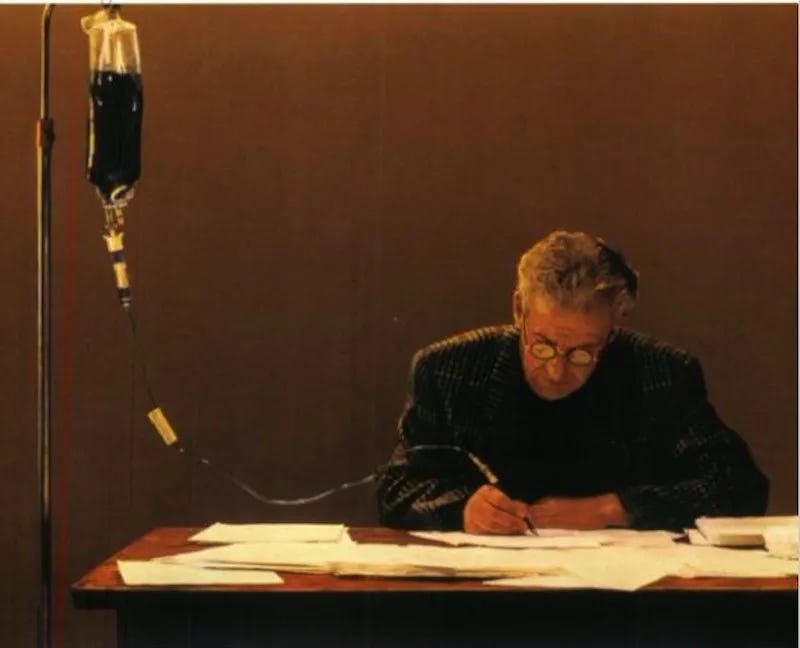Our Second Serial Novel Contest (Submission Guidelines)
Next Deadline: January 28th, 2026
What is PILCROW?
The next contest deadline is January 28th, 2026, Midnight Eastern Standard Time
The ultimate Winner of the contest will receive a $1,000 prize; each of the two Finalists will receive $500
Entries must consist of the first three to four chapters of your unpublished novel (or alternatively, no more than ~20,000 words)
Exceptions to the “unpublished” requirement may be made if only a short excerpt has been published elsewhere
Entries should be emailed in PDF form to: editorial@pilcrowmag.com
The subject line of your email should read: SUBMISSION, FirstName LastName, Title of Novel (pseudonymous submissions are also accepted)
There is no requirement to provide a synopsis or outline of the novel in your email (though one may choose to do so)
Finalists will be notified no later than February 4th, 2026 and must respond in a timely manner
Upon being notified, Finalists must provide the remaining chapters of their completed novel (failure to do so is disqualifying)
We will begin serializing the submitted portion of each Finalist’s novel on or about February 8th, 2026, a process that will unfold over several weeks
Once all Finalist’s submitted chapters have been serialized, subscribers to PILCROW will be invited to vote for a Winner, and we will then begin fully serializing the Winner’s novel
What We Talk About When We Talk About What We’re Looking For
We’ve never much been fans of literary magazines trying to tell writers what they want them to write. (We certainly don’t want anything “urgent” or “necessary.” Seek professional help for that.) The truth of course is that we don’t know what we don’t know: only you do.
No guidelines, then? Perhaps one: invent a new need in us.
Going against men, I have heard at times a deep harmony
thrumming in the mixture, and when they ask me what
I say I don't know. It is not the only or the easiest
way to come to the truth. It is one way.
– Wendell Berry, "The Contrariness of the Mad Farmer"
“What I first require of a work of art is that its agenda—is that the word I want?—not include me. I don’t want its aims put in doubt by an attempt to appeal to me, by any awareness of me at all.”
– Denis Johnson, Train Dreams
“The nature of failure ensures that writers will go on writing no matter how many readers they have. You have to master the embarrassments and ignominies of life. And, paradoxically, one of the best ways of achieving this mastery over failure is not to drown it in alcohol, not to take pills or see a shrink, but to relive it, over and over, in words. It isn't that the words enable you to change the outcome and exact revenge – that invariably makes unsatisfactory reading. You can tell when writers are reinventing their experience vaingloriously. What writers at their best achieve is a saturation of shame, triumphing over it by excluding or extenuating nothing, possessing it as theirs, and handing it back again, depersonalized, in comedy of one sort or another.”
– Howard Jacobson
“What is the meaning of life? That was all – a simple question; one that tended to close in on one with years. The great revelation had never come. The great revelation perhaps never did come. Instead, there were little daily miracles, illuminations, matches struck unexpectedly in the dark; here was one.”
– Virginia Woolf, To the Lighthouse
"The view is endlessly fulfilling. It is like the answer to a lifetime of questions and vague cravings. It satisfies every childlike curiosity, every muted desire, whatever there is in him of the scientist, the poet, the primitive seer, the watcher of fire and shooting stars, whatever obsessions eat at the night side of his mind, whatever sweet and dreamy yearning he has ever felt for nameless places far away, whatever earth sense he possesses, the neural pulse of some wilder awareness, a sympathy for beasts, whatever belief in an immanent vital force, the Lord of Creation, whatever secret harbouring of the idea of human oneness, whatever wishfulness and simple-hearted hope, whatever of too much and not enough, all at once and little by little, whatever burning urge to escape responsibility and routine, escape his own over-specialization, the circumscribed and inward-spiralling self, whatever remnants of his boyish longing to fly, his dreams of strange spaces and eerie heights, his fantasies of happy death, whatever indolent and sybaritic leanings, lotus-eater, smoker of grasses and herbs, blue-eyed gazer into space – all these are satisfied, all collected and massed in that living body, the sight he sees from the window."
– Don DeLillo, "Human Moments in World War III"
“Since you seldom spoke, you were rarely wrong. You seldom spoke because you seldom went out. If you did go out, you listened and watched. Now, since you no longer speak, you will always be right. In truth, you do still speak: through those, like me, who bring you back to life, and interrogate you. We hear your responses and admire their wisdom. If the facts turned out to contradict your counsel, we blame ourselves for having misinterpreted you. Yours are the truths; ours are the errors.”
— Edouard Levé, Suicide



Could we submit more than one manuscript? 😅
Obvious question: I've serialized my novel already on Substack, albeit in draft form. Would you still be interested?